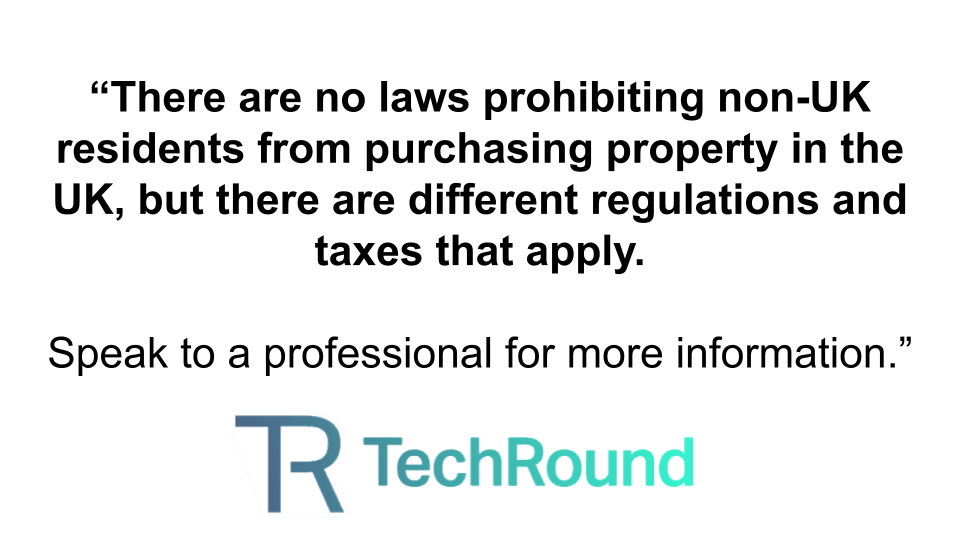If you are a non-UK resident looking to buy a property in the UK, it can be a very exciting investment opportunity but it can also be a complex process. For foreign buyers, the process may be even more challenging as they may be subject to different taxes and regulations.
In 2021, almost 250,000 residential properties in England and Wales were registered to individuals based overseas. This number has continued to grow. Whether you are looking to buy a primary residence, a holiday home or an investment property, this article will provide you with the information you need to navigate the UK property market as a non-UK resident.
Can Non-UK residents Buy a Property in The UK?
Yes, there are no laws or restrictions that prohibit non-UK residents from purchasing property in the UK. In fact, many international investors and expats living abroad purchase UK property as a sound investment. This can be a long process, but it is definitely possible.
Are There Any Taxes or Regulations For Non-UK Residents Buying property in the UK?
Yes, Non-UK residents may be subject to different taxes and regulations when buying and owning property in the UK. Generally non-UK residents must seek legal and financial advice before making a purchase to ensure that they are aware of and can comply with any relevant taxes or regulations.
Do Foreign Investors Need a Visa To Buy UK Property?
No, but the range of products that lenders offer foreign investors might be more restrictive. The lending criteria and requirements may be different for non-UK residents, which can lead to them potentially having trouble with finding mortgages.

What Should I Consider When Buying a House in The UK?
When you buy a house in the UK, you will face both upfront costs (surveys, legal fees, Stamp Duty Land Tax, for example) and ongoing costs (insurance, utilities, and mortgage interest payments). You may need to pay a reservation fee or a deposit too, especially if it is newly built. You can consider these factors alongside the cost of the property to decide how much loan capital you may need.
Take a look at the house’s Energy Performance Certificate (EPC). This is a document that summarises and rates the energy efficiency of every property that is bought, sold, or rented. The EPC comes with an energy performance rating, as well as recommendations on how to improve this rating. Homes are rated between A (the best) and G (the worst). This is an important consideration, because homes with a poor rating will be expensive to maintain.
After these factors are taken into consideration, think about the location, age, freehold or leasehold, and the nearby amenities of your property. At this stage, many borrowers start shopping around for mortgage providers.
How Long Can Non-UK Residents Stay in a Property They Own in The UK?
Although there is no set time limit for how long non-UK residents can stay in their own UK-based properties, there are some things to consider. If a non-UK resident plans to use that UK property as a primary residence, they will likely be subject to UK taxes and regulations.
Who is Eligible To Buy Property in The UK?
Whether or not you are eligible will depend on things like your background and financial position. It does not matter whether or not you are a UK resident. You can be a UK expat living abroad, or even a foreign national.



